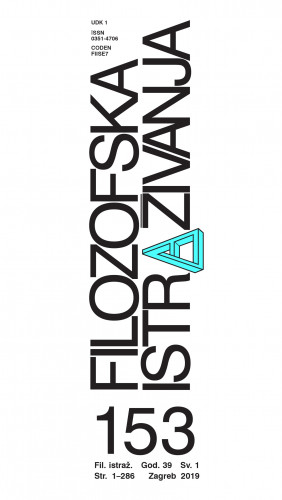Predmet je istraživanja autonomija umjetnosti iz jungovske perspektive. Ono što je Jung pri vlastitom shvaćanju neovisnosti umjetničkog procesa imao na umu jest sloboda u odnosu na svjesnost umjetnikova uma, prije negoli njegova neovisnost o trenutnim društvenim, političkim ili kulturnim uvjetima. Prema Jungu, umjetnost je autonomna kada dolazi iz dubljih razina ljudske psihe, iz domene onog nesvjesnog. Da bih provjerila valjanost Jungova »autonomnog kompleksa«, analizirat ću empirijsku realnost umjetničkog stvaranja, prezentirajući sindrome profesionalnih umjetnika vezane uz kreativni proces. Također, propitat ću kategorički položenu i duboko ukorijenjenu ideju o bliskoj vezi između umjetničkog talenta i mentalne bolesti, nastojeći otkriti može li umjetnički proces biti neovisan od umjetničkog psihološkog stanja. Prema Jungovu pogledu, umjetnost se događa namjesto, a ne poradi potencijalne umjetnikove bolesti. Osim toga, njegovu ću mišljenju suprotstaviti Freudovo, za kojega je umjetničko djelo sublimacija seksualnog nagona ili proizvod neuroze, a ta je ideja za Junga je bila neprihvatljiva, s obzirom na to da je vjerovao u postojanje ne samo seksualnog nego i umjetničkog kompleksa. Naposljetku, pokušat ću dokazati da je Jungovo viđenje u prikazu umjetničkog procesa preciznije od Freudova i da njegovo naglašavanje autonomije u umjetnosti, iako radikalno, zaslužuje više pozornosti učenjaka na polju filozofije i psihologije umjetnosti.; The subject matter of the essay is the autonomy of art, which will be analysed from a Jungian perspective. What Jung had in mind with his notion of the independence of the artistic process is its freedom from the conscious mind of an artist, rather than its independence from the current social, political or cultural conditions. Art, according to Jung, is autonomous if it comes from deeper levels of the human psyche, and that is unconsciousness. To test the validity of Jung’s "autonomous complex", I will be checking the empirical reality of artistic creation, by providing professional artists’ accounts of the creative process. Also, I will challenge the categorically laid and the deeply rooted idea of a close link between artistic talent and mental illness, trying to see if the artistic process can be independent of an artist’s psychological state. In Jung’s view, art happens instead of and not because of potential illness of an artist. Additionally, I am going to contrast his view with Freud’s, for whom an artwork is a sublimation of sexual drive or a product of neurosis. This idea was not acceptable to Jung, as he believed in the existence of not only sexual but also art complex. Finally, I will try to argue that Jung’s view is more accurate in the depiction of artistic process than Freud’s and that his emphasis on the autonomy in art, although radical, deserves more attention from scholars in philosophy and psychology of art.
Sažetak

 Filozofska istraživanja : 39,1(2019) / glavni i odgovorni urednik Ante Čović.
Filozofska istraživanja : 39,1(2019) / glavni i odgovorni urednik Ante Čović.